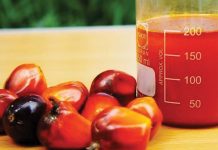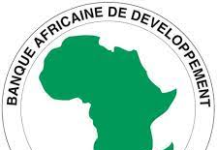In its drive to ensure that Nigerians have wholesome nutritious meals, especially breakfast, Nestle Nigeria Plc says it will continue to leverage on its Creating Shared Value (CSV) Initiatives to further strengthen the development of local content in its products.
The company restated that it aspires to continue to increase the percentage of local sourcing of raw materials from the current attainment of about 80%.
The News Agency of Nigeria (NAN) reports that under the CSV initiatives, Nestlé, together with its partners, including International Fertiliser Development Centre (IFDC)/2Scale, USAID, VEGA and CNFA, aims to continue to work with farmers within its value chain to improve grain quality and productivity.
The partnerships are also helping farmers to improve their livelihoods by empowering them on sustainable farming practices under the Sorghum and Millet in the Sahel and Feed the Future Nigeria and Nestle Maize Quality Improvement projects.
The interventions have made significant impact in the past two years, empowering 41,671 to improve grain quality and increase productivity through various collaborations.
In 2017 alone for instance, the Sorghum and Millet in the Sahel Project in partnership with the IFDC trained over 7,905 sorghum and 1,069 millet farmers on good agricultural pre-harvest and post-harvest practices.
NAN reports that 22 per cent of these farmers are women who have testified to a significant increase in income.
They said the change was due to an increase in productivity, improved crop quality and the availability of a ready market, which eliminates the negative influence of middlemen.
Mrs Victoria Uwadoka, Corporate Communications and Public Affairs Manager of Nestle, told NAN that Nestle’s efforts towards increasing local sourcing had yielded impressive results.
Currently, Nestlé sources most of its raw materials locally.
“Today, about 80 per cent of the agricultural input in our production is sourced locally, thanks to the investments we have made towards increasing local sourcing since 2011.
“Currently, Nigerian farmers’ supply 100 per cent of the grains and legumes used in Golden Morn, the malt in MILO is made from sorghum supplied by smallholder farmers who cultivate the grain in northwestern Nigeria.
Other input sourced locally includes Soya Beans, Cocoa Powder, Palm Olein, Maize and Millet,” she told NAN.
“Over seven years ago, Nestle launched its Cereal Plan to increase local sourcing of grains, cereals and legumes for its production.
“For a manufacturer like Nestle that is a food and beverage manufacturer focused on nutrition and wellness, our area of competence is not farming.
“In our firm belief that the sustainability of our company is tied to improving livelihoods and creating shared value in the communities within which we operate, Nestle launched the Cereal Plan to empower farmers to improve grain quality and increase productivity.
“So, what we did was to create projects that include the aggregators, some who have worked with Nestle for over 20 years, input suppliers, the smallholder farmers and project implementation partners who provide the training and manage the extension services.
“We believe that this model which takes a 360 degree view of the ecosystem and empowers all the stakeholders within the value chain thereby creating efficient linkages is the right way to ensure sustainable backward integration, one where each player is empowered to focus on and succeed in his area of competence.
“By creating shared value for all parties, we are not only empowering value chains, we are growing an ecosystem that works,” she said
Uwadoka said that through the farmer capacity building initiatives, the firm was happy that over 80 per cent of its raw material was sourced locally, and will continue to work alongside the government and other partners to increase local content.













